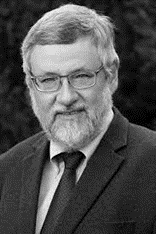Magnon Bose-Einstein Condensates for Data Processing
Talk Announcement:
Magnon Bose-Einstein Condensates for Data Processing
Sponsored by: IEEE Rocky Mountain Magnetics Society, NIST Magnetic Imaging and Spin Electronics Groups
(IEEE-sponsored Free Lunch with speaker for Students and Postdocs*)
Date, Time, Place: 11:00AM, Mon. Aug. 12, 2024, room: 81-A-116
https://nist.zoomgov.com/j/1607748767?pwd=KEujevCYeNlp6DlPBu8tezQStxyN6d.1
Meeting ID: 160 774 8767
Passcode: 140875
Magnon Bose-Einstein condensates for data processing
Fachbereich Physik and Landesforschungszentrum OPTIMAS
Rheinland-Pfälzische Technische Universität (RPTU) Kaiserslautern-Landau
67663, Kaiserslautern, Germany
There is a growing need for faster and more efficient information processing. The field of magnonics is seen as a path to better information processing technology, especially with regard to computing power and scaling properties. The basic idea is to use magnons, the quanta of spin waves, as information carriers.
Macroscopic quantum states of matter such as magnon Bose-Einstein condensates (BECs) are excellent candidates for classical and quantum information processing, in particular due to their inherent coherency. The wavefunctions of the magnon BECs describe highly populated boson states and thus justify a semiclassical approach. They can be generated at room temperature, allowing both wave-based BEC data processing and quantum-classical qubit computation.
Magnon Bose-Einstein condensates in in-plane magnetized magnetic films are spatially localized due to their zero group velocity. Therefore, the ability to control the transport properties of magnon BECs plays an essential role in their practical use for data processing.
I will discuss the transport properties of magnon BECs via the excitation of magnon supercurrents and address the enabling of room-temperature quantum computing functionalities using a two-wavevector component magnon BEC.
Date and Time
Location
Hosts
Registration
Speakers
Burkard Hillebrands
Magnon Bose-Einstein Condensates for Data Processing
Biography:

His research field is experimental magnetism, in particular magnonics. He is particularly interested in nonlinear magnonic phenomena, magnonic crystals, magnon gases, magnon condensates and magnonic supercurrent phenomena in view of applications in novel information technologies such as magnon logics.
In 2019-2022 he served as President of the European Magnetism Association. In 2015-2017 he was Chair of the International Union of Pure and Applied Physics (IUPAP), Commission C9: Magnetism. He is member, Chair of the Class of Mathematics and Natural Sciences, and Vice President of the Academy of Sciences and Literature, Mainz. He is member of the National Academy of Science and Engineering (acatech). He is IEEE Fellow, APS Fellow and Fellow of the Institute of Physics, London. In 2016 he received an ERC Advanced Grant of the European Commission. In 2023 he received the Achievement Award of the IEEE Magnetics Society. He served on the Administrative Committee of the IEEE Magnetics Society and was Honors&Awards Chair in 2013-2018. In 2018-2024, he was Chair and Member of the Scientific Advisory Board of the Helmholtz Center Dresden-Rossendorf (HZDR), and also Member of the HZDR Supervisory Board.
He has published more than 430 refereed articles, book contributions, and several patents.
Address:Rheinland-Pfälzische Technische Universität (RPTU) Kaiserslautern-Landau, , Kaiserslautern, Germany, 67663


 Add Event to Calendar
Add Event to Calendar